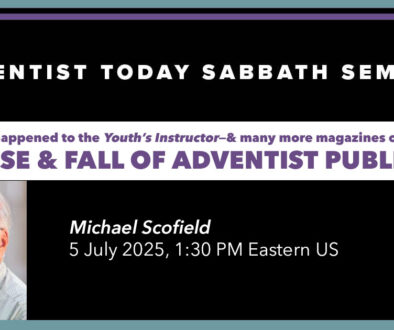Sharing Scripture for June 14 – 20
[symple_heading style=”” title=”The Bible and Prophecy” type=”h1″ font_size=”40″ text_align=”center” margin_top=”0″ margin_bottom=”30″ color=”undefined” icon_left=”” icon_right=””]
This is a tool for you to use if you lead a Sabbath School (SS) class or small group. It is keyed to the Bible texts used in the current week’s Adult SS Lesson and includes a brief story from current news you can use to introduce the discussion and then a series of discussion questions in a relational pattern designed to build fellowship and spiritual reflection.
For use: June 14 – June 20
Texts: 2 Timothy 2:10-15; 1 Chronicles 29:17; James 4:6-10; Galatians 6:9; Acts 17:11
Warning labels on some boxes of disposable masks show they are ineffective at protecting against the spread of COVID-19. A Facebook post shows a picture of the side of the box for an ear loop mask bearing a label claiming the ineffectiveness. The post creator’s comment reads, “Gee…wonder how many people are gonna tell me I haven’t done my research now? Black and white. Right there. Even the people making the masks know it’s bull.” [1]
But Samantha Putterman, who writes for PolitiFact with the Poynter Institute, a fact-checking journalism organization, has a different take. While she agrees that the mask box label is legitimate, people are misinterpreting it. She affirms, “The N95 respirator offers the most protection against viral particles for the wearer because it can filter very small aerosol particles (my emphasis).”
Putterman then explains, “This is a misunderstanding about the kind of protection standard masks provide and a misreading of the disclaimer, which isn’t saying the masks are ineffective at limiting the spread of COVID-19.” The CDC suggests that medical workers who are in direct contact with infected patients should wear medical-grade masks (which are in high demand), but that the general public leave the special masks for the medical workers.
So, why wear a cloth mask (or these ear loop masks) at all if it will not prevent you from getting COVID-19? “A cloth face covering is not intended to protect the wearer, but it may prevent the spread of virus from the wearer to others. This would be especially important if someone is infected but does not have symptoms.” It’s not just about protecting the wearer, it’s about protecting others if a person is infected and may not even realize it. (You can read about another article on removing face masks here. [2])
This week’s Sabbath school lesson, titled “Dealing with Difficult Passages,” reminds us, like product labels, that misunderstandings over challenged Bible verses happen all the time. While there’s no question that some passages are difficult to understand (just read what Peter says about Paul in 2 Peter 3:15, 16), we often overlook the human element in properly interpreting Scripture. Just because one does not clearly understand a Bible verse does not mean the problem lies solely with the Bible.
Our lesson makes several helpful suggestions on dealing with difficult Bible verses. Following Paul’s advice to Timothy about “accurately handling the word of truth” (2 Timothy 2:15 NASB), we must recognize there are various ways to approach the Bible and not all of them are good. Quickly reading a single verse and jumping to conclusions is not as helpful as reading the context and studying other passages that shed light on that verse.
Along with careful and determined study, approaching Scripture with a humble heart will help us more clearly see truth. After all, the Bible is not simply a book of facts to be analyzed; it’s a message of salvation to imperfect human beings, a love letter from God to a dying world. When we approach the Word with a willing heart, we will be protected from the virus of sin.
[symple_divider style=”solid” margin_top=”20″ margin_bottom=”10″]
Connecting: Can you think of a Bible verse that, after reading it, had you feeling confused by what it meant? What was the verse? Or have you heard others quote Bible verses as proof that the Scriptures are untrustworthy or inconsistent?
Sharing: What advice does the Bible itself give for properly understanding Scripture and God’s truth?
- “Untaught and unstable people” (2 Peter 3:16) are unreliable sources for knowing Scripture.
- It’s possible to “wrongly divide” the Word of truth (2 Timothy 10:15).
- Humility before the Scriptures will help open our eyes to understanding (James 4:10).
- If you don’t quickly understand a Bible verse, persist in your study (Galatians 6:9).
- Cross-check what you hear others teach about the Word (Acts 17:11).
- Other…
Applying: Have your online or in-person small group choose a couple of “difficult” Bible passages, then work through five steps to understand the verses: 1) Humbly pray for insight, 2) Carefully read the passage in context, 3) Read other related passages on the topic, 4) Use other study tools (commentaries, etc.) to gain further insights, 5) Be open to take in and obey what you learn about God.
Valuing: Do you sometimes struggle to understand the meaning of the Bible? Pray with another member of your group, asking God to give you humility, wisdom, and a willing heart to learn more of heaven’s will for your life this week.
~ Curtis Rittenour




